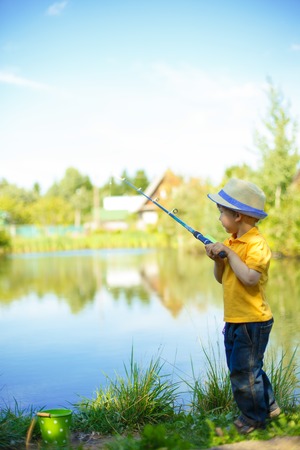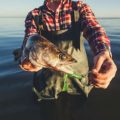Introduction to Junior Angling and Its Community Impact
Junior angling in the UK has emerged as a vital pathway for introducing young people to the joys and challenges of fishing, while simultaneously fostering a stronger sense of community engagement. Across England, Scotland, Wales, and Northern Ireland, junior angler programmes provide structured opportunities for children and teenagers to learn not only the technical skills of fishing but also essential values such as patience, respect for nature, and teamwork. These initiatives are often backed by local angling clubs, charities, and community organisations that recognise the long-term social benefits of nurturing the next generation of anglers.
The importance of engaging young people in fishing extends far beyond the water’s edge. It serves as an effective strategy for promoting physical activity, mental well-being, and positive lifestyle choices among youth who might otherwise be at risk of social isolation or anti-social behaviour. By providing a constructive outlet and a sense of belonging, junior angling programmes help to reduce barriers to participation in outdoor activities—something increasingly crucial in today’s digital age.
Moreover, these schemes deliver tangible social and environmental benefits for local communities. Angling events often bring families together, strengthen intergenerational bonds, and drive increased footfall to rural areas—supporting local businesses in the process. Environmentally, junior anglers are frequently involved in conservation projects such as habitat restoration and litter picks, instilling a lifelong appreciation for sustainable fishing practices and stewardship of Britain’s waterways. In this context, grant funding and sponsorship are not just financial lifelines; they are catalysts for wider community regeneration and environmental improvement.
Key UK Grant Funding Sources for Junior Angler Programmes
Securing reliable funding is a cornerstone for the successful development and sustainability of junior angler programmes in the UK. Numerous national and regional bodies offer grants specifically aimed at supporting youth sports initiatives, environmental education, and community engagement through angling. Understanding where to look and how to apply can give clubs and organisations a strategic edge.
Major National Grant Providers
Several prominent organisations provide grant funding tailored to grassroots sport and youth engagement:
| Provider | Focus Area | Typical Grant Amount | Application Highlights |
|---|---|---|---|
| Sport England | Youth Sport Development | £300–£10,000+ | Emphasises increasing activity levels, inclusivity, and skill-building for young people; applications must demonstrate community impact. |
| The Angling Trust | Angling Participation & Club Support | Up to £5,000 | Supports junior coaching, equipment, club infrastructure, and events; prioritises projects that grow participation among under-18s. |
| National Lottery Community Fund | Community Projects & Youth Engagement | £1,000–£100,000+ | Funds innovative projects with wide-reaching social benefits; strong emphasis on inclusion, health, and wellbeing outcomes. |
Regional and Local Council Initiatives
Apart from national schemes, many local councils across England, Scotland, Wales, and Northern Ireland operate small grants for sports development and youth activities. These are often less competitive and more responsive to community-specific needs. Examples include:
- Council Sports Development Funds: Typically support coaching qualifications, facility hire, or equipment for junior sections.
- Youth Opportunity Grants: Focused on engaging hard-to-reach groups or providing start-up capital for new programmes.
- Environmental Education Grants: Sometimes available for initiatives that combine angling with conservation or outdoor learning.
Tactical Tips for Applicants
Pursuing multiple funding streams increases the likelihood of success. Clubs should tailor applications to each provider’s objectives and be prepared to evidence outcomes such as increased participation rates, improved skills among juniors, or positive impacts on local communities. Collaboration with schools or environmental charities can further strengthen bids by demonstrating wider social value.
![]()
3. Navigating the Grant Application Process
Securing grant funding for junior angler programmes in the UK demands a strategic approach, meticulous preparation, and a clear understanding of what funders are seeking. To maximise your chances of success, it is crucial to follow a step-by-step process tailored to the British funding landscape.
Step 1: Understand the Funder’s Priorities
Begin by thoroughly researching potential grant providers—whether government bodies, local councils, angling trusts, or private foundations. Pay close attention to their mission statements, recent funded projects, and specific aims. Many UK funders prioritise youth engagement, environmental stewardship, inclusivity, and community development within angling initiatives. Make sure your programme aligns with these objectives before proceeding.
Step 2: Demonstrate Tangible Impact
Funders expect clear evidence of how their support will benefit young anglers and wider communities. Use robust data to illustrate demand and potential impact—such as statistics on youth participation rates, testimonials from previous programme beneficiaries, or case studies demonstrating positive outcomes. Set measurable targets (e.g., number of participants engaged, qualifications achieved) and describe methods for monitoring progress over time.
Step 3: Fulfil Eligibility Criteria
Each grant scheme comes with its own set of eligibility requirements regarding applicant status (such as registered charity or constituted club), geographical location, and project scope. Carefully review all criteria before applying. Incomplete or ineligible applications are routinely rejected at the first hurdle in the UK funding context.
Step 4: Address Funders’ Requirements Effectively
Respond directly to each question or section in the application form, ensuring your answers are concise and relevant. Highlight partnerships with schools, local authorities, or environmental groups to strengthen your bid. Provide a realistic budget breakdown using British Pounds Sterling (£), clearly justifying each cost. Where possible, demonstrate long-term sustainability beyond initial funding—this is particularly valued by UK sponsors.
Top Tips for Success
- Seek feedback on draft applications from peers or local funding advisors.
- Use plain English—avoid jargon unless specifically requested by the funder.
- Submit well ahead of deadlines to allow time for unforeseen issues.
By following these steps and tailoring your approach to the expectations of UK-based funders, your junior angler programme will be well-positioned to secure vital financial support for future growth and impact.
4. Sponsorship Strategies: Securing Local and National Partners
Attracting sponsorship for junior angler programmes in the UK requires a strategic, locally attuned approach. With British tackle shops, outdoor brands, and independent businesses keen to invest in community-driven initiatives, junior angling clubs must articulate their value in a manner that resonates with potential partners. Below are key strategies and practical steps to secure meaningful sponsorship deals:
Approaching Tackle Shops and Outdoor Brands
Tackle shops and outdoor retailers often seek opportunities to reinforce their commitment to grassroots angling. When pitching to these entities, highlight the reciprocal benefits:
| Programme Value Proposition | Benefits for Sponsor |
|---|---|
| Engagement with young anglers and their families | Increased brand visibility among future customers |
| Community-based environmental stewardship projects | Enhanced local reputation and CSR credentials |
| Regular events and competitions | Product placement and direct sales opportunities |
A well-crafted proposal should include statistics on participant numbers, event attendance, social media reach, and testimonials from past sponsors. Make it clear how the sponsor’s support translates into tangible outcomes for both parties.
Collaborating with Local Businesses
Local pubs, cafes, print shops, or transport companies may be willing to support junior angler programmes as part of their investment in the community. Emphasise the following points when seeking their backing:
- Positive Publicity: Stress the local press coverage and social media mentions that come with supporting youth initiatives.
- Civic Pride: Position your programme as fostering local talent, responsibility, and teamwork.
- Sponsorship Packages: Offer tiered packages (e.g., Bronze, Silver, Gold) tailored to business size and desired exposure.
Sample Sponsorship Packages Table
| Package Level | Contribution (£) | Sponsor Benefits |
|---|---|---|
| Bronze | £250+ | Name on banners & certificates, social media shout-out |
| Silver | £500+ | Logo on event t-shirts, feature in press releases, website link |
| Gold | £1000+ | Main event sponsor title, speaking opportunity at awards ceremony |
Cultural Touchpoints for British Sponsors
Sponsors in the UK value authenticity, community engagement, and environmental sustainability. Leverage quintessentially British values—such as respect for tradition and countryside preservation—when crafting your pitch. Demonstrate how your programme aligns with these principles through responsible fishing practices and inclusive participation.
Final Tips: Building Long-Term Partnerships
Nurture relationships by providing regular updates, inviting sponsors to events, and publicly recognising their support. A transparent approach builds trust and often leads to renewed or expanded sponsorships in subsequent seasons.
5. Maximising Engagement: Delivering Value for Funders and Sponsors
Securing grant funding or sponsorship is only the first step; sustaining these vital partnerships hinges on demonstrating genuine value and measurable outcomes. For junior angler programmes in the UK, robust engagement strategies and transparent reporting are essential to meet the expectations of British funders and sponsors.
Tactics for Delivering Measurable Outcomes
British grant-makers and sponsors increasingly seek evidence of impact. Set clear, quantifiable objectives—such as increased youth participation rates, improved angling skills, or enhanced environmental awareness. Use participant surveys, attendance records, and skill assessments to collect data. Regularly track progress against your targets, ensuring you can provide concrete results at reporting intervals.
Effective Reporting Practices
Transparency is a cornerstone of British funding culture. Develop concise, visually engaging reports that summarise achievements and lessons learned. Highlight case studies featuring individual participants or community success stories to illustrate your programmes tangible benefits. Incorporate photos (with appropriate permissions), infographics, and direct feedback from young anglers and their families to bring your impact to life.
Community Engagement: Building Grassroots Support
Strong local engagement not only strengthens your bid for future funding but also amplifies sponsor visibility within the community. Organise open days, school workshops, or family fishing events where sponsors can interact with participants and showcase their commitment. Leverage local press coverage and social media platforms popular in the UK—such as Facebook groups or Twitter—to share updates and publicly acknowledge funder support.
Meeting Expectations of British Funders and Sponsors
UK-based grant-makers often prioritise inclusivity, environmental responsibility, and long-term sustainability. Tailor your engagement by incorporating eco-friendly practices (e.g., litter picks or habitat restoration), offering accessible sessions for all abilities, and outlining plans for future growth. Maintain regular communication with your funders through newsletters or stakeholder meetings to keep them informed, involved, and invested in your success.
Conclusion: Sustaining Long-Term Partnerships
By focusing on clear outcomes, transparent reporting, meaningful community involvement, and alignment with British values, junior angler programmes can deliver compelling value to both grant funders and sponsors. This approach not only secures ongoing support but also establishes your initiative as a benchmark for excellence in youth angling development across the UK.
6. Case Studies: Successful UK Junior Angler Programmes
Highlighting Best Practice in Grant and Sponsorship Utilisation
Across the UK, several junior angling programmes stand out as prime examples of how effective grant funding and sponsorship can transform grassroots initiatives into sustainable community assets. These case studies not only illustrate strategic use of financial support, but also demonstrate the long-term benefits for young people and local communities.
Get Hooked on Fishing (GHOF)
Established as a charity with national reach, Get Hooked on Fishing has become a benchmark for successful junior engagement through angling. GHOF has secured substantial funding from Sport England, The Angling Trust, and various local councils. Their approach involves structured coaching sessions, community events, and mentoring schemes—all funded through a blend of grants and local business sponsorships. The programme’s focus on inclusion and mental wellbeing has attracted additional backing from health-oriented organisations, amplifying its impact on youth development and social integration.
The Prince Albert Angling Society (PAAS) Youth Initiative
PAAS runs one of the UK’s largest junior angling networks, made possible through a combination of member donations, lottery grants, and tackle industry sponsors. The society leverages these funds to provide free or subsidised fishing licences, equipment loan schemes, and regular competitions aimed at building skills and fostering camaraderie among young anglers. Their model is underpinned by close relationships with schools and youth groups—a strategy that demonstrates how aligning with educational objectives can unlock wider funding streams.
Bristol Waters’ Schools Angling Programme
This initiative partners with both public sector funders and private firms to deliver introductory angling days for schoolchildren across Bristol. With support from the Environment Agency’s Fisheries Improvement Fund and local corporate sponsors, the programme covers all costs for participants, ensuring accessibility regardless of background. The project reports increased school attendance and improved behaviour among attendees—tangible outcomes that have helped secure ongoing investment from stakeholders keen on measurable community benefits.
Key Lessons Learned
These thriving examples share common threads: proactive outreach to diverse funding sources; clear articulation of youth outcomes; and diligent tracking of impact metrics to satisfy sponsors’ expectations. By integrating angling into broader themes such as education, wellbeing, and social mobility, these programmes have not only enhanced opportunities for young anglers but also strengthened their own sustainability in an increasingly competitive funding landscape.


